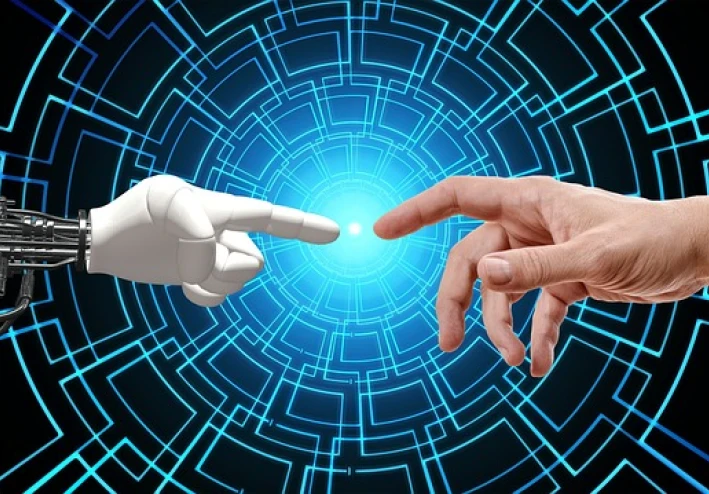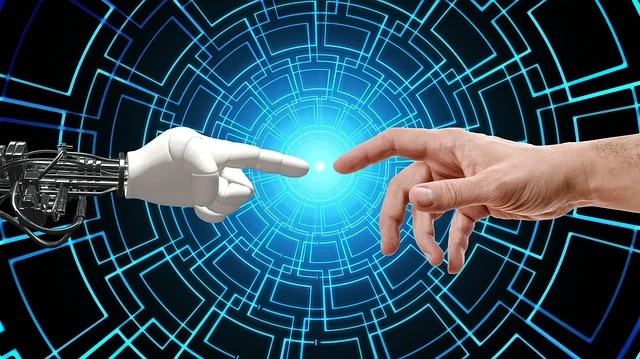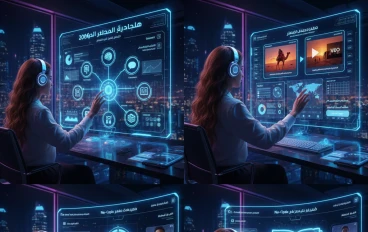
The Future of Artificial Intelligence: How AI Is Transforming Our World
The Future of Artificial Intelligence: How AI Is Transforming Our World
🧠 Introduction
Artificial Intelligence (AI) is no longer a distant dream—it’s a living, evolving reality that touches every part of our lives. From the smartphones we use to the cars we drive and the healthcare systems we rely on, AI is quietly shaping the world around us. But what does the future of AI really look like? And how will it continue to transform the way we live, work, and communicate?
🚀 1. Understanding Artificial Intelligence
AI refers to the ability of machines to perform tasks that typically require human intelligence. These include learning, reasoning, problem-solving, perception, and language understanding. With the help of algorithms and massive data, AI systems can now “learn” from experience and improve over time without human intervention.
Machine Learning (ML) and Deep Learning (DL) are the driving forces behind modern AI. They enable computers to analyze huge datasets, recognize patterns, and make predictions with impressive accuracy—whether in stock trading, medical diagnosis, or voice recognition.
🏥 2. AI in Everyday Life and Industries
AI is everywhere. Here are some of the key sectors being revolutionized:
🩺 Healthcare
AI helps doctors diagnose diseases earlier and more accurately. Systems powered by AI can detect cancer in medical images or predict patient outcomes better than traditional methods.
💰 Finance
Banks and fintech companies use AI to detect fraud, automate transactions, and provide personalized financial advice. Chatbots now handle millions of customer interactions daily.
🚗 Transportation
Self-driving cars and smart traffic systems are redefining mobility. Companies like Tesla, Waymo, and Uber are investing heavily in AI to make transportation safer and more efficient.
🏫 Education
AI-driven learning platforms can adapt to each student’s pace and style, making education more personalized and accessible.
⚙️ 3. How AI Is Changing the Workplace
AI is automating repetitive tasks, allowing humans to focus on creativity, strategy, and problem-solving. However, this shift also brings challenges. Some jobs will disappear, while new ones—like AI ethics specialists and data scientists—are emerging.
The key to thriving in this AI-driven era is reskilling and lifelong learning.
⚖️ 4. Ethical and Social Challenges
As AI grows more powerful, it raises important questions:
Can we trust machines to make fair decisions?
How do we protect privacy and data security?
Who is responsible when an AI system makes a mistake?
Governments and organizations are now working on regulations to ensure AI remains transparent, ethical, and human-centered.
🔮 5. The Future Ahead
In the next decade, AI will become even more integrated into society. We’ll see breakthroughs in areas like:
Artificial General Intelligence (AGI) — systems that think and learn like humans.
AI in Climate Science — predicting and managing environmental changes.
AI and Creativity — generating music, art, and literature beyond human imagination.
The ultimate goal is not to replace humans, but to enhance human potential — creating a world where humans and intelligent machines collaborate to solve global challenges.

🌍 Conclusion
The future of Artificial Intelligence is full of promise and uncertainty. It is transforming our world faster than any technology before it. Whether AI becomes our greatest ally or our biggest threat depends on how wisely we develop and use it.
If guided by ethics, innovation, and empathy, AI could help humanity reach new levels of progress and understanding.





































